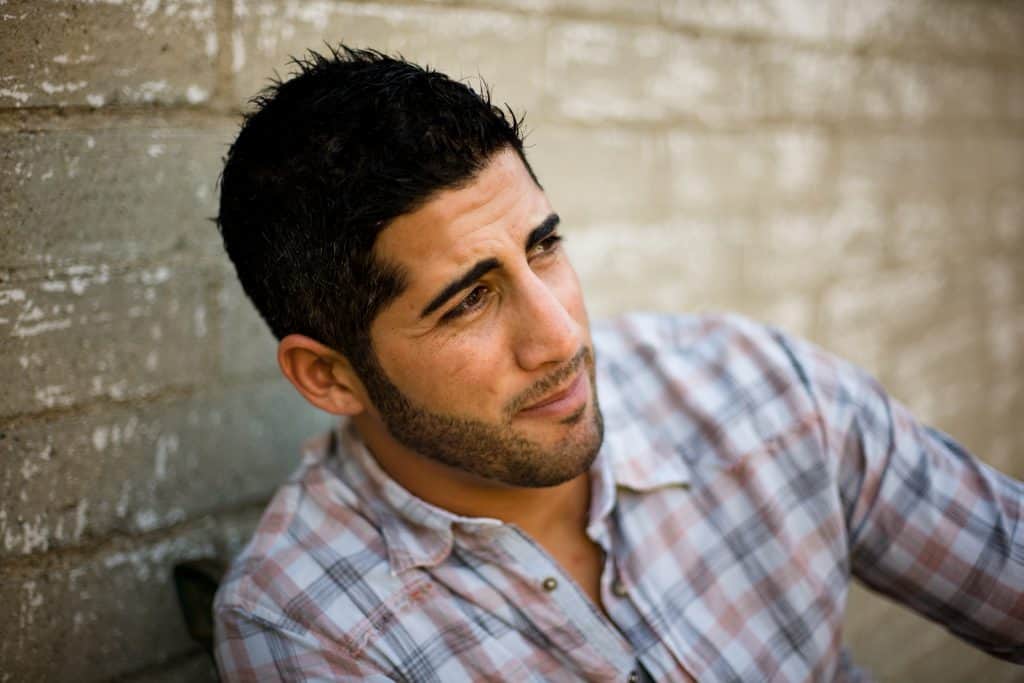Azoospermia Treatment in Los Angeles & San Francisco

Five percent of infertile men have azoospermia, or an absence of sperm in the ejaculate. But thanks to advanced medical treatments, men with azoospermia do not have to give up their hopes of conceiving a child. Depending on the type of azoospermia, it may be surgically treatable with a return of ejaculated sperm or it may require sperm retrieval and assisted reproduction to achieve pregnancy.
Such success is made possible by experts like Dr. Paul Turek, a board-certified urologist and reproductive health care provider. If you are having trouble conceiving, perhaps due to azoospermia, Dr. Turek will educate you about your condition and recommend the most suitable course of treatment. The solution could be as straightforward as getting out of hot baths, stopping anabolic steroids and restoring natural testosterone balance; or, it could require highly technical surgical intervention. Either way, you are in good hands under the care of Dr. Turek, who is a pioneer in managing the condition.
Types & Causes of Azoospermia
Obstructive Azoospermia
Obstructive azoospermia occurs when the sperm is produced but blocked from reaching the ejaculate. This blockage may occur in:
- An area of the testicles where sperm mature (the epididymis)
- The tube that transports the sperm into the ejaculate (the vas deferens)
- The ducts at the openings of each side of the tube (ejaculatory ducts)
The blockage may occur due to injury, infection a prior surgery or a genetic abnormality.
Non-Obstructive Azoospermia
In non-obstructive azoospermia, sperm is simply not produced at all, or a very small amount is produced and cannot make it out of the testicles. This can occur due to hormonal causes, past infections, undescended testicles, injury or twisting of the testicles, congenital and genetic abnormalities or a varicocele (an enlarged vein in the scrotum).
How Is Azoospermia Diagnosed?

Dr. Turek will begin by taking a thorough medical history, asking you about your current medications, any previous surgeries, medical disorders and your family medical history. Next, he will perform a physical examination of your genitalia. Then, he will order blood tests to look at testosterone, follicle stimulating hormone (FSH), luteinizing hormone (LH) and estradiol levels.
Finally, a carefully performed semen analysis is needed. If no sperm is found on the first look at the semen, the sample is “spun down” in a centrifuge to concentrate even small numbers of sperm into a “pellet.” The pellet is examined through a microscope for the presence of sperm. Dr. Turek has found that in 10-20 percent of men with no sperm in semen analyses performed without a centrifuged pellet, sperm can be found after evaluation in his laboratory.
Finding even the smallest number of sperm in the pellet means that complete obstruction is unlikely and that you may have the option of using the sperm for assisted reproductive treatment to conceive.
If it is still not clear whether the problem lies within sperm production or sperm delivery through the reproductive tract, Dr. Turek may recommend examining the testes themselves to assess sperm production. The traditional way to do this was to perform a testis biopsy; Dr. Turek has pioneered a much less invasive procedure called fine needle aspiration (FNA) mapping (“sperm mapping™”) that is far more informative and far less invasive than a testis biopsy.
Treating Azoospermia
Treating azoospermia depends on the type and cause.
Microsurgical Reconstruction

In cases of obstructive azoospermia, most obstructions are repairable with microsurgical or endoscopic reconstruction. This complex surgery is best left to a skilled microsurgeon like Dr. Turek, who is very experienced with this operation. He can pinpoint the exact location of the blockage and repair it to restore the normal flow of sperm into the ejaculate. Dr. Turek has an excellent success rate even in cases where the blockage is in the epididymis, which is the most difficult area to repair.
Treatment for Nonobstructive Azoospermia
If sperm is not being produced naturally, Dr. Turek may recommend medical treatment to help develop ejaculated sperm. Couples also have the option of using sperm retrieved from the testis for assisted reproduction treatment. Dr. Turek uses several strategies to find sperm and minimize trauma to the testis when procuring sperm. FNA mapping and microdissection testicular sperm retrieval have been very successful approaches.
Frequently Asked Questions About Azoospermia
Will azoospermia make it impossible for me and my partner to conceive?
Not necessarily, when you work with a reproductive health specialist like Dr. Turek. His advanced medical interventions can improve sperm production or help locate small numbers of sperm that would have otherwise gone unnoticed.
Depending on the type of azoospermia you have, Dr. Turek can suggest the safest and most effective treatment options. Sometimes the solution is as straightforward as making lifestyle changes; in other cases, it may require a procedure, surgery and/or assisted reproduction.
In either scenario, rest assured that under Dr. Turek’s care, a diagnosis of azoospermia does not necessarily mean you will never conceive.
Does azoospermia mean that my testicles are not making sperm?
Not always. Your testicles might make sperm normally, but a problem with your reproductive system could prevent the sperm from reaching your ejaculate. This is called obstructive azoospermia.
Can medications affect sperm production?
Replacement or supplemental testosterone can affect sperm production. Testosterone therapy blocks the hormonal signals that tell the testicles to make testosterone and sperm. This can lead to very low sperm production or a complete absence of sperm from the ejaculate.
Anabolic steroids are an extreme example of this effect and usually entirely disrupt the normal function of the reproductive system.
A semen analysis says I have azoospermia. What should I do next?
It is understandable after hearing this that you are probably concerned about the likelihood of starting or growing your family. But help is available, and the first step is to consult with a male board-certified infertility specialist like Dr. Turek.
During an initial appointment with Dr. Turek, he will take a complete medical history to learn more about your health, lifestyle, medications and any previous illnesses and surgeries. Dr. Turek will also order blood tests to look at your hormones and another semen analysis at a laboratory that has a lot of experience with these types of tests. Sometimes Dr. Turek can find sperm where sperm has otherwise gone undetected by doing an “extended search,” which involves running semen samples through a centrifuge and examining them thoroughly under a microscope.
What is the best treatment for azoospermia?
There is no one-size-fits-all solution. The best treatment for azoospermia depends on you — more specifically, your blood test and semen analysis results, physical exam, reproductive function, age, lifestyle and other factors. Once Dr. Turek has learned more about you and the suspected cause of your azoospermia, he can personalize or tailor treatment options to fit your case.
Can blockages that cause obstructive azoospermia be treated?
Yes, an experienced microsurgeon like Dr. Turek can identify the location of the blockage and repair it safely and effectively restore the flow of sperm to the ejaculate. This is done with small incisions and the use of the operating microscope whenever possible.
How can sperm be retrieved and used for assisted reproduction?
If it is not possible to restore the flow of sperm to the ejaculate, Dr. Turek can retrieve sperm from the testicles or other reproductive organs to use for assisted reproduction (i.e., in vitro fertilization). For testicular sperm, he uses a breakthrough procedure called sperm mapping™, which is less invasive, less painful and less stressful than a traditional biopsy or any other technique. Sperm mapping™ identifies the exact location of the sperm in the testicles to make it easier to retrieve.
Contact The Turek Clinic
If you have questions about obstructive or non-obstructive azoospermia, The Turek Clinic is here to help. Please contact us today.









